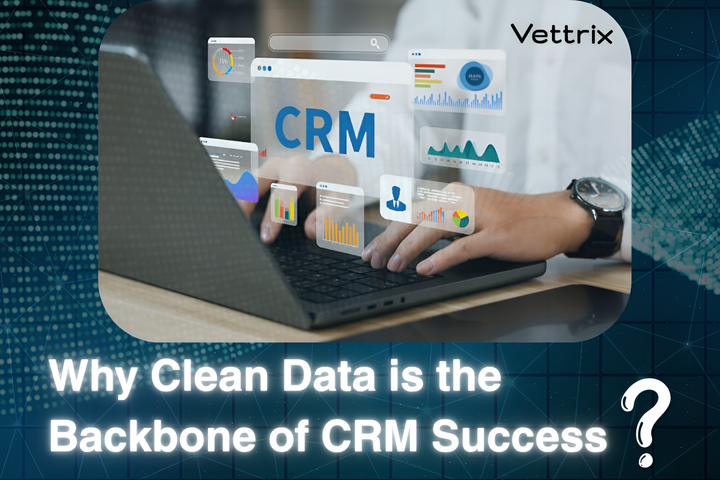Why Clean Data is the Backbone of CRM Success

In the world of Customer Relationship Management (CRM), data isn’t just fuel—it’s the engine. Yet, many organizations unknowingly run on contaminated fuel: outdated, duplicated, or inaccurate data. The result? Misguided strategies, missed opportunities, and diminished ROI.
In this blog, we’ll explore why clean data is the single most critical factor for CRM success—and how ensuring data integrity unlocks sales efficiency, marketing precision, and customer satisfaction.
What Is “Clean Data”?
Clean data refers to customer information that is:
- Accurate: Reflects the current reality (correct names, phone numbers, email addresses, etc.)
- Consistent: Standardized format across all records (e.g., “NY” vs. “New York”)
- Complete: All necessary fields are filled (no missing contact details)
- De-duplicated: No repeated entries for the same lead or customer
- Timely: Regularly updated to reflect new interactions or changes
In essence, clean data is usable, actionable, and trustworthy.
1. Clean Data Enables Smarter Sales Strategies
Your sales team relies on CRM insights to prioritize leads, plan outreach, and close deals. Dirty data—like invalid emails or outdated job titles—wastes time and erodes confidence.
With clean data:
- Lead scoring models work accurately
- Sales reps spend more time selling, not researching
- Follow-ups land in the right inbox at the right time
This alignment between clean inputs and sharp execution dramatically improves conversion rates.
2. Marketing Campaigns Perform Better
In B2B CRM-driven marketing, targeting is everything. Campaigns that rely on incorrect segments or missing fields often result in poor open rates and irrelevant messaging.
Clean data powers:
- Precise segmentation (e.g., industry, company size)
- Personalized content that resonates
- Higher email deliverability and engagement
Ultimately, marketers can build more effective, data-driven campaigns with measurable impact.
3. Reporting & Forecasting Become Reliable
Bad data leads to bad decisions. If your dashboards show inflated deal volumes due to duplicates, or missing revenue because of blank fields, you risk strategic missteps.
Clean CRM data improves:
- Sales pipeline accuracy
- Revenue forecasting
- KPI tracking across departments
Clean inputs lead to credible insights—crucial for decision-makers at every level.
4. Customer Experience (CX) Improves
Imagine your top client gets a sales pitch for a product they already bought, or worse, their name is spelled wrong in a campaign. These are red flags of dirty data.
With clean data, you can:
- Personalize interactions across touchpoints
- Respect customer preferences and history
- Avoid embarrassing or repetitive messages
This translates directly into stronger relationships and higher lifetime value (LTV).
5. It Powers Automation and AI
Modern CRMs use automation, AI, and predictive analytics—but these technologies are only as good as the data that feeds them.
Garbage in = Garbage out.
Clean data ensures:
- Automated workflows (like follow-ups) trigger correctly
- AI recommendations are useful, not misleading
- Integration across tools is smooth and error-free
How to Keep Your CRM Data Clean
- Set validation rules: Enforce required fields and correct formats
- Schedule regular cleanups: Remove duplicates and inactive contacts
- Use enrichment tools: Autofill missing fields from trusted sources
- Tag and categorize leads properly: For efficient segmentation
- Train your team: Good data hygiene starts with the users
Conclusion: The Competitive Advantage of Clean Data
In today's data-driven business environment, clean CRM data isn't just an operational concern—it's a strategic advantage. Organizations that master data quality enjoy more efficient operations, stronger customer relationships, and more accurate decision-making.
As customer expectations for personalization and relevance continue to rise, the gap between organizations with clean data and those without will only widen. The question isn't whether you can afford to invest in data quality, but whether you can afford not to.
By building a strong foundation of clean, accurate, and well-maintained CRM data, you position your organization to fully leverage the power of your CRM investment and create sustainable competitive advantage.
Ready to transform your CRM data quality? Start with our comprehensive guide on the importance of accurate contact data in 2025 and begin your journey toward CRM excellence built on the solid foundation of clean data.